Thai Pongal: தைப்பொங்கல்) Tamil 2013-Harvest Festival
Thai Pongal பொங்கல் is a popular four day annual Harvest festival particularly celebrated in the region of Tamil Nadu, South India. It is a religious and cultural New Year celebration that occurs during the Tamil month of Thai in mid January according to the Tamil solar calendar. Pongal is named after a dish made from harvested rice, milk, cardamom, cashews and spices which are placed by female elders in an earthen pot on an open air fire and left to boil. In a festive tone people ask ‘has the rice boiled?’ and when the reply is ‘It has boiled.’ families then shout “Pongal-o-Pongal” and early morning celebrations begin. ‘Pongal’ means “boiling over”, which symbolizes the growth of agricultural success and prosperity. The word derived from Pongedi in the South Indian language of Telugu and Pongaradu in Tamil, both signifying ‘to boil or spill over’. Why rice? In many cultures rice is classified as a ritual, auspicious food and is used in religious offerings for its association with growth and fertility. The festival is therefore celebrated mainly in rural areas, and the beautiful Kolam floor designs are adapted within south Indian urban towns and cities. This year Pongal celebrations fall between 13th-16th January 2013 and each day is associated with a different ritual meaning. The first day is ‘Bhogi Pongal’, the second day ‘Thai Pongal’ or ‘Surya Pongal’, the third day ‘Maatu Pongal’ and the fourth day is called ‘Kaanum Pongal’.
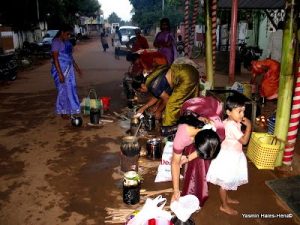
Tamil women collectively preparing ritual Pongal in the streets of Pondicherry, Tamil Nadu, South India
Bhogi Pongal is the celebration of the Hindu God Indra, the God of clouds and rain who helps the growth of rice crops. This day is associated with a spiritual rite of passage as unwanted waste and clothes are burnt in bonfires and houses are ritually cleansed, painted and filled with sweet smelling fresh flowers. New domestic utensils are bought and the shops are filled with famous South India celebratory saris. There is a great sense of almost tangible excitement embedded within this traditional shared heritage. Each South Indian region has their own emphasis, with locals paying greater attention to either bhogi pongal, pongal floor decorations or the cultural festivities as I have had the pleasure to witness in the rural heritage region of Chettinad, the urban capital of Chennai and French post colonial township of Pondicherry.
On the second day of Surya Pongal the Sun God Surya is worshipped. Rising from 4am women decorate their houses with beautiful ‘kolam’ floor designs traditionally made by hand from pure white and coloured crushed rice on the threshold of the home. Kolam competitions also occur in towns and villages where women eagerly draw large, competitive diagrams in order to show off the visual and memory skills, reinforcing the transmission of this important intangible heritage tradition.
As part of the South Indian community celebration, adults and children all participate in a symbolic feast of seven rice and vegetable dishes eaten on traditional banana leaves. This is accompanied by a wide variety of cultural programmes, and in local villages I have witnessed ferocious egg and spoon races, wonderful south Indian music concerts and with great interest mixed with a greater dose of inexperience, judged a highly prized village Kolam competition.
On the third day of Maatu Pongal, cows and bulls are offered thanks as they play a great role in ploughing and preparing the South Indian land for agriculture. These sacred animals are ritually washed and decorated with colourful horns and paraded around town with jangling bells. Locals also worship the cattle with ritual Hindu pujas, tilaks of red powder ‘kumkum’ on their forehead and bless their feet in the same way a devotee honours a religious deity during temple worship. In many Indian villages during Mattu pongal, festive streets are filled with young men who challenge each other to bull riding games including grabbling a bulging bag of Indian rupees from the cattle’s horns.
The fourth day is called Kaanum Pongal when people travel to celebrate with family relatives. On this day younger generations pay homage to elders, where ritual blessings and gifts are exchanged. An additional ritual is called Kakkai Chatham where food is left on banana leaves for crows to eat. Tamils believe that the crows are the souls of their ancestors and thus daily feeding with rice is a good deed. The fourth day is additionally associated with poets and poetry and alternatively called Thiruvalluvar Day or Karinall. Thiruvalluvar was a great Tamil poet and his work is honoured through traditional Tamil literature. The Pongal festival is celebrated the world over by South Asian communities marking a cyclical, ritual ending of the old harvest year and inviting unity and new fresh beginnings for all.
Happy Pongal 2013
Copyright © 2013 Yasmin-Hales Henao . All Rights Reserved.

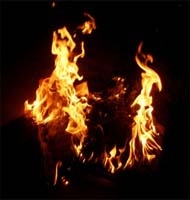
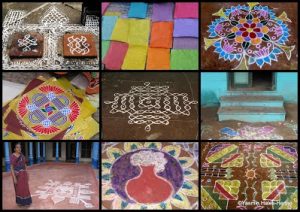
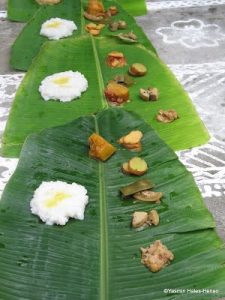

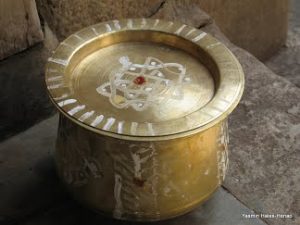
Recent Comments